Edition: 8 to 19 April 2024
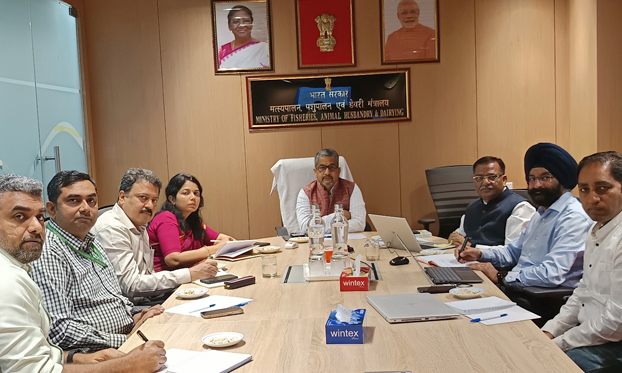 ©FAO | INDIA Preparing veterinary treatment guidelines and disease prioritization strategy On 8 April 2024, FAO met with the Animal Husbandry Commissioner of India, Dr Abhijit Mitra, to formulate a comprehensive standard veterinary treatment guideline tailored for India. The consensus was to structure these guidelines either by system or by species, leading to the proposal of four committees: the Core Committee, Drafting Committee, Expert Committee and Review Committee. Dr Mitra also emphasized the importance of including a diverse range of experts from civil society, private practitioners, the Indian Veterinary Association, the Veterinary Council of India and the National Academy of Veterinary Sciences, among others. FAO also briefed Dr Mitra about the progress of the animal disease prioritization document, including its methodology and the establishment of the four committees. |
Learn more about our work on partnerships here.
| |
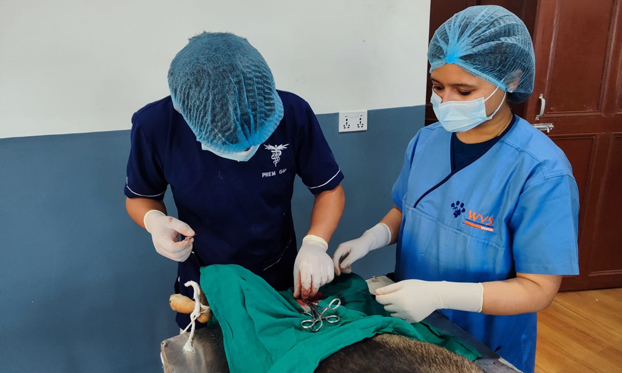 ©FAO/Surendra karki | NEPAL Animal birth control training for rabies elimination With support from USAID, FAO conducted a three-day hands-on training on animal birth control for veterinarians from 10 to 12 April 2024, in Bharatpur, Chitwan. The training aimed to equip practicing veterinarians with hands-on skills in animal birth control and vaccinating community and stray dogs against rabies, contributing towards the "zero by 30" target for rabies elimination. Organized in collaboration with the Department of Livestock Services and Nepal Veterinary Association in Bagmati Province, the training included eighteen public and private sector veterinarians.
|
| Learn more about our work on One Health here. | |
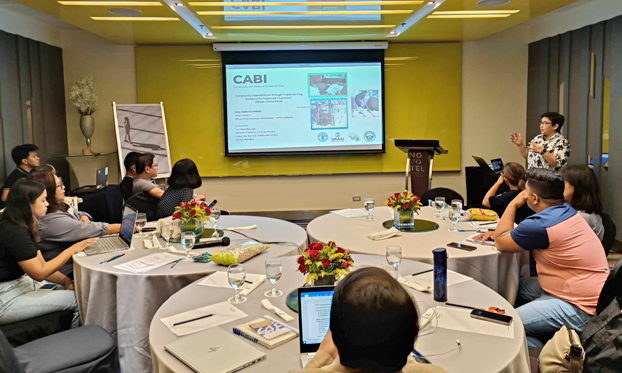 ©BAI/NASFPCP | THE PHILIPPINES Community African swine fever Biosecurity Intervention to be launched in new areas
FAO, through PHILVET Health Services, conducted a workshop as part of the preparation to expand the Community African swine fever Biosecurity Intervention (CABI) in Bais City and Ilocos Norte of the Philippines. CABI is a practical programme aiming to help smallholder pig farmers mitigate and recover from ASF by strengthening biosecurity measures. This preparation workshop took place from 18 to 19 April 2024, and was co-organized with the Philippine Bureau of Animal Industry (BAI). The official launch of CABI in Bais City and Ilocos Norte is scheduled for May 2024. This programme, supported by the United States Agency for International Development (USAID)’s Bureau of Humanitarian Assistance (BHA), has been successfully implemented in several areas in the Philippines and is being expanded across the country to meet local community needs. |
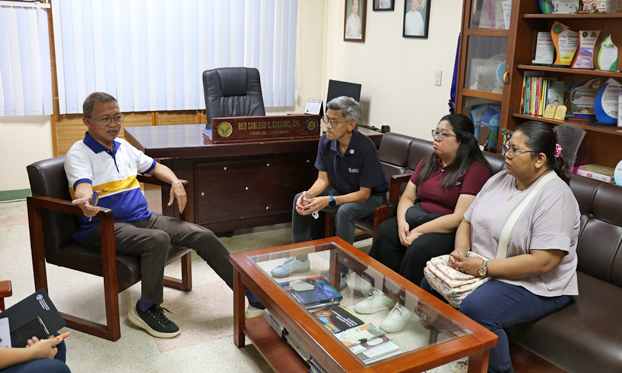 ©BAI/NASFPCP | ASIA AND THE PACIFIC AND THE PHILIPPINES Communication research survey continues in the Philippines
FAO ECTAD at RAP provided backstopping support to the ongoing research survey on the ASF communication strategy in the Philippines. The team is coordinating the knowledge, attitude and practices (KAP) survey and providing technical guidance to FAO ECTAD in the Philippines and the Philippines’ National ASF Prevention and Control Program. Furthermore, the team travelled to Misamis Oriental to interview respondents and facilitate focus group discussions in the evaluation of KAP related to ASF. This follows the previous field surveys conducted in Pampanga in Luzon, in February, and Iloilo in the Visayas, in March. The study focuses on smallholder swine farmers, meat vendors, traders and government veterinarians. Results are due by the end of May, with a communication workshop slated for early June, thanks to the Republic of Korea’s Ministry of Agriculture, Food and Rural Affairs for the funding support. |
Learn more about our work on ASF here.
| |
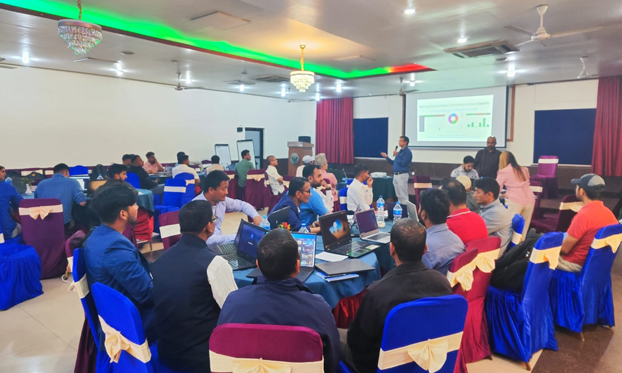 ©FAO/Surendra Karki | NEPAL Orientation training on web-based Nepal Animal Health Information System
FAO, with funding from USAID, conducted a one-day training on web-based Nepal Animal Health Information System (NAHIS) in Bharatpur, Chitwan on 11 April 2024. The objective of the training was to provide hands-on practice on the NAHIS software for epidemiological reporting to animal health professionals at local level and veterinary hospitals. The event was organized in collaboration with the Department of Livestock Services and Directorate of Livestock and Fisheries Development in Bagmati Province, and thirty-three professional animal health officers working in local level and veterinary hospitals of Chitwan, Nawalpur and Makawanpur participated. |
Learn more about our work on capacity development here.
| |
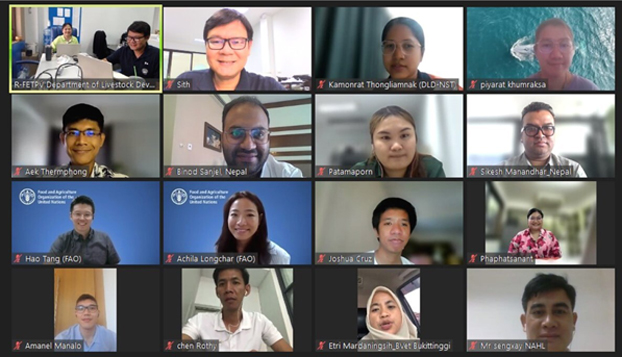 ©FAO/RFETPV | ASIA AND THE PACIFIC New cohort of trainees from six Member Nations embarks on RFETPV
Excitement abounds as the Regional Field Epidemiology Training Program for Veterinarians (RFETPV) welcomes its fifteenth group of trainees since the program started in 2009. This new cohort, consisting of 12 trainees from Cambodia, Lao People’s Democratic Republic, Nepal, the Philippines, Indonesia and Thailand, has started their training with an online course via FAO’s Virtual Learning Centre. An orientation workshop provided trainees with an overview of the programme's structure, curriculum and online learning requirements. Trainees have been tasked with completing the preliminary online course by the end of May, preparing for an in-person training module in Thailand in June. Supported by the Defense Threat Reduction Agency (DTRA) and USAID, the RFETPV continues to enhance the capabilities of the veterinary epidemiology workforce across Asia. |
Learn more about our work on epidemiology here.
| |
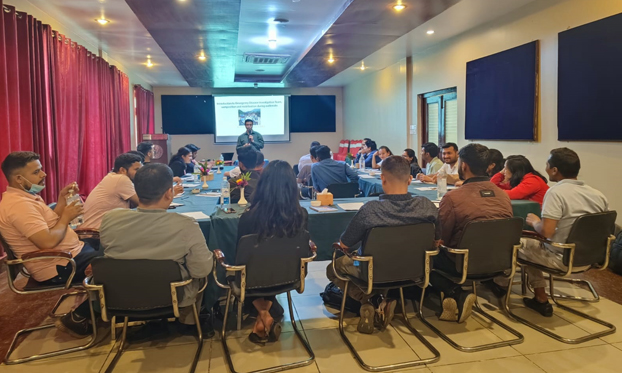 ©FAO/Surendra Karki | NEPAL Outbreak investigation training for veterinary officers From 8 to 10 April 2024, FAO conducted a three-day training on investigating animal diseases outbreak in Bharatpur, Chitwan. The training sought to improve the capacity of field-level veterinarians in conducting efficient outbreak investigations. Funded by USAID, the activity was organized in collaboration with the Department of Livestock Services and Directorate of Livestock and Fisheries Development in Bagmati Province.
|
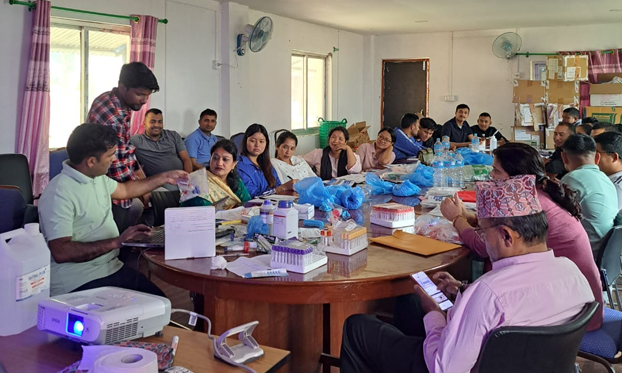 ©FAO/SURENDRA KARKI | NEPAL Training on sample collection, dispatch and epidemiological reporting training A two-day sample collection, dispatch and epidemiological reporting training was held in Sindhuli district of Bagmati Province from 10 to 11 April 2024. Twenty animal health technicians working at local level in Sindhuli district received hands-on training and were provided with sample collection kits. The programme was conducted in collaboration with the Department of Livestock Services, Central Veterinary Laboratory and Veterinary Hospital and Livestock Services Expert Center in Sindhuli.
|
| Learn more about our work on surveillance here. | |
